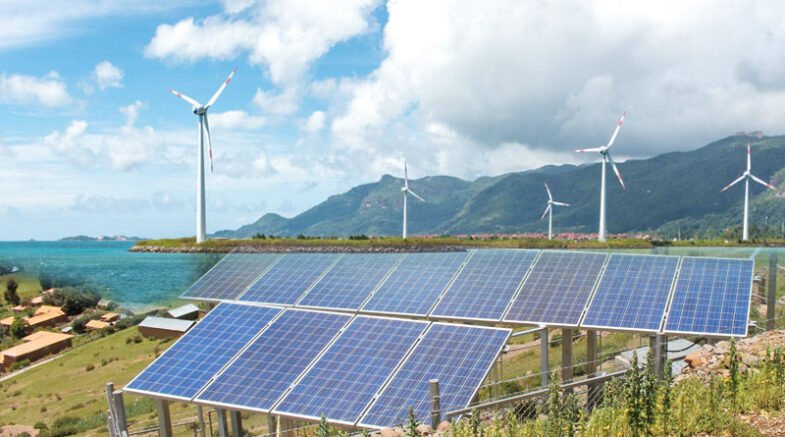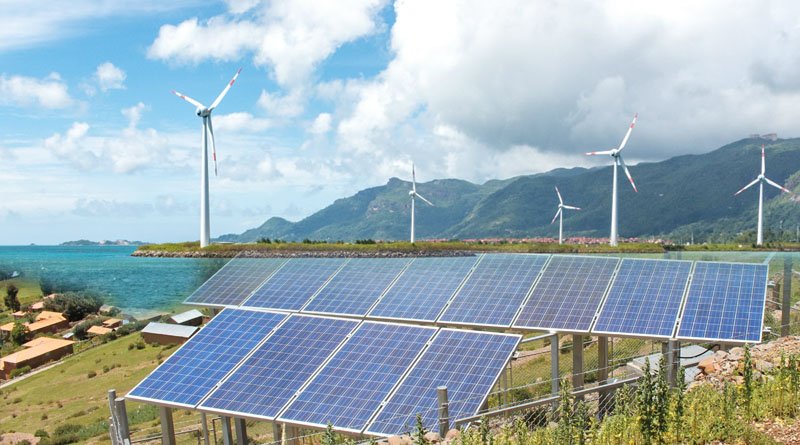Antigua and Barbuda have the same lofty objective as Mauritius in the Caribbean, but the latter is aiming for a significant 60% of the nation’s energy mix.

For their energy needs, small island developing states (SIDS) are increasingly turning to renewable energy sources. The Solomon Islands have started a roadmap in the Pacific to generate all of their energy from renewable sources by the year 2030.
Antigua and Barbuda have the same lofty objective as Mauritius in the Caribbean, but the latter is aiming for a significant 60% of the nation’s energy mix.
Small island developing states (SIDS) are struggling to unlock the potential of renewable energy to transform their societies. Resources such as solar, wind, geothermal, and marine energy remain largely untapped, even with rapidly falling production costs.
SIDS still rely heavily on petroleum products, and many have low or insignificant amounts of renewable energy in their energy mix. These challenges are complex but not insurmountable, and the Commonwealth is committed to supporting island nations to secure a more sustainable future.
The Little Island Developing States experience a unique set of difficulties. Since SIDS have small, open economies by nature, many of them rely heavily on imported oil products to meet their energy needs, which include those for electricity, transportation, and cooking. In addition, they deal with some of the highest electricity prices in the world as well as significant supply chain challenges.
The prices for imported refined oil products (including diesels, gasoline, and LPG) are typically high due to low volumes, small markets, varying fuel standards, distance from suppliers, and the weak negotiating position of individual island countries and territories.
In addition, the rise in the price of oil-related commodities has constrained government fiscal space while causing inflation in other goods, including food.
SIDS are also experiencing the effects of climate change firsthand because of global warming. Their energy infrastructure is extremely susceptible to natural disasters like cyclones, earthquakes, flooding, and tsunamis, which can cause disruptions in the energy supply and raise security risks related to energy.
And while SIDS make up less than 1% of the world’s greenhouse gas emitters, many have pledged to switch to entirely renewable energy sources by 2030.
All of these circumstances strongly support switching from polluting fossil fuels to renewable energy sources. However, the COVID-19-induced economic stagnation makes the pace and scale of the clean energy transition slow.
Investors in the industry face a number of challenges. For starters, compared to many of the larger islands, some of the SIDS have higher political risks. Lenders and developers frequently worry about the political unpredictability as well as the enforcement of the government’s or state-owned companies’ obligations.
Energy-related legal and regulatory frameworks may also be inadequate or ambiguous. Restrictive conditions, such as those relating to foreign investment and repatriation, can frequently turn away investors, which heightens their perception of risk.
Additionally, a large number of the local financial institutions lack the capacity or the necessary development to provide the level of project financing support needed for renewable energy projects.
However, the small size of individual projects may not appear to be very appealing from a foreign investor’s perspective, resulting in less interest.
These obstacles must be removed in order to fully realise the advantages of a low carbon energy sector. Small island countries have a number of options to improve their energy security and make the switch to renewable energy sources, both now and in the future.
Holding strategic petroleum reserves as a safety net against an energy crisis, promoting bulk purchase agreements to lower energy costs, and diversifying energy suppliers and supply routes are some early actions that could already be taken. To encourage the use of cleaner energy, the government could enact carbon taxes.
SIDS must reduce their reliance on imported oil products and move to cleaner forms of energy, develop clean energy infrastructure, storage, and transportation networks, and attract investment and financing for renewable energy projects.
The Commonwealth Secretariat and Sustainable Energy for All (SEforALL) have launched a toolkit to generate viable business cases and strategies for clean energy investment opportunities in the power sector.
The SIDS Energy Toolkit seeks to address some of the hurdles for investors by helping countries quantify the level of investment needed to achieve renewable energy targets and identify specific policy and regulatory gaps. It is a useful tool to help countries translate clean energy transition plans into investable business opportunities.
The CSET Agenda encourages and promotes collaboration amongst the 56 Commonwealth countries, and highly skilled technical advisers at the Commonwealth Secretariat provide assistance to support countries in policy analysis, formulation, the development of legal or regulatory frameworks, and research on natural resource management.
Ultimately, the aim is to achieve sustainable energy access for all (SDG 7) while also tackling climate change.
